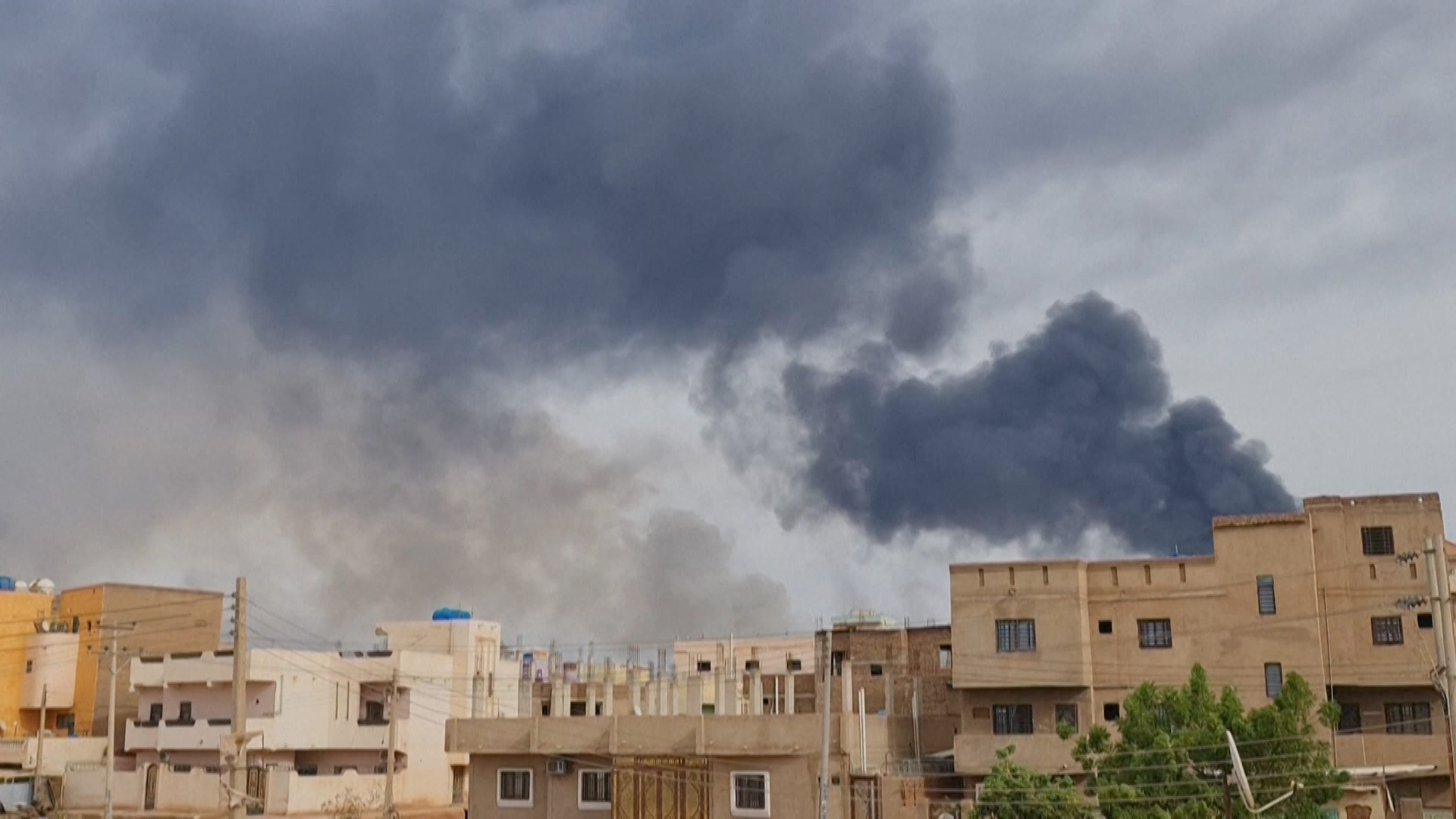The two sides in the fighting in Sudan announced on Friday the agreement to a 24-hour truce, and the United Nations refused to withdraw its envoy despite declaring him persona non grata, while the capital Khartoum turned into a semi-deserted city in light of the continued displacement and the worsening humanitarian situation.
The parties to the conflict in Sudan have agreed to a short new truce starting on Saturday and ending on Sunday morning, according to a statement from the Saudi-US mediation.
Riyadh and Washington announced that the army and the Rapid Support Forces had agreed to "a ceasefire agreement throughout Sudan for a period of 24 hours, starting at six in the morning on the tenth of June 2023" (four in the morning GMT).
They stressed that they "share with the Sudanese people the frustration of not adhering to the previous truces," and that the new agreement aims to "access humanitarian aid, break the state of violence, and contribute to strengthening confidence-building measures between the two parties, allowing the resumption of the Jeddah talks."
Sudan's army said it had agreed to the truce "taking into account the humanitarian aspects suffered by our people as a result of the ongoing operations", stressing that it reserved "the right to deal with any violations that may be committed by the rebels" during them.
The RSF also pledged to "fully" abide by a ceasefire agreement "to serve the purposes of the truce", hoping that the army will fulfill its pledges "and not obstruct humanitarian aid efforts to alleviate the suffering of citizens".
Since the conflict began on April 15, the two sides have struck ceasefires that were quickly violated.
A Saudi-American statement warned that "if the two parties do not abide by this truce, the two marchers will be forced to postpone the Jeddah talks."
Battles and fires
Fighting continued on Friday in several areas, especially in Khartoum, and witnesses reported hearing "the sounds of clashes near the Yarmouk factory" for defense industries, which the Rapid Support Forces announced on Wednesday that they had controlled.
The complex, located in the south of the capital, is the country's most prominent military manufacturing facility.
Since Wednesday, clashes have been taking place in the vicinity of the complex, accompanied by a fire caused by the explosion of one of the oil storage tanks at the nearby Al-Shajara oil and gas facility.
In eastern Khartoum, residents reported aerial bombardment from army aircraft and heavy anti-aircraft machine guns.
In the northern suburb of Omdurman, residents reported artillery shelling and clashes.
UN Resolution
In a related context, Stephane Dujarric, spokesman for the Secretary-General of the United Nations, announced that the Sudanese government's consideration of the envoy of the international organization as "persona non grata" is "incompatible" with the principles of the United Nations and "cannot be applied," pointing out that the status of the German Volker Perthes "has not changed."
"Mr. Peretz's status has not changed at the moment, and the position of the Secretary-General (Antonio Guterres) remains as he expressed it before the Security Council last week," Dujarric said, referring to the "absolute confidence" that Antonio Guterres has repeatedly expressed about his envoy to Sudan.
"The Secretary-General recalls that the principle of persona non grata does not apply to United Nations personnel, and its invocation contradicts the obligations of States pursuant to the Charter of the United Nations," the spokesman added.
Sudan's Foreign Ministry earlier said the government had notified the secretary-general of Peretz's declaration of "persona non grata".
This came after Sudanese army chief Abdel Fattah al-Burhan asked Guterres in late May to replace Peretz over accusations of fuelling the conflict.
On the cusp of disaster
Humanitarian organizations have repeatedly warned of the seriousness of the humanitarian situation in Sudan, especially in Khartoum and the Darfur region (west), where the battles are most intense.
Outgoing Red Cross head of mission Alfonso Ferdo Perez warned that the health situation was "potentially collapsible at any time" despite efforts.
According to medical sources, 3 quarters of hospitals in combat zones are out of service, and the crisis is feared to worsen as the rainy season approaches, which threatens to spread malaria, food insecurity and child malnutrition.
The United Nations estimates that 25 million of the country's 45 million people need aid.
Khartoum, Darfur (west) and El Obeid (south) are the most affected areas at the health and humanitarian levels and the significant lack of basic services, amid fears of a slide towards a major humanitarian disaster, especially with the increasing number of people fleeing the war internally and externally.
The population of Khartoum, most of which is now abandoned, is decreasing, with residents suffering from shortages of basic foodstuffs.
Anadolu Agency reported that bread and fuel could run out at any time, in the absence of an influx of food and services from the city.
The Sudan Medical Syndicate said on Friday that the city of El-Obeid (the capital of North Kordofan) suffers from a siege from all sides by military forces (did not specify its affiliation to either side of the conflict), which led to the deterioration of the living and health situation of the city's citizens.
Since clashes erupted in the country, the RSF's offensive on Sudan's military-controlled Obeid has not stopped.
The medical syndicate said in a statement that most of the supplies had run out of markets, warning of an imminent food disaster if the food was not delivered.
She pointed to the theft of the premises of the World Food Organization, where warehouses, 3 vehicles belonging to the organization and a fuel vehicle were stolen.

